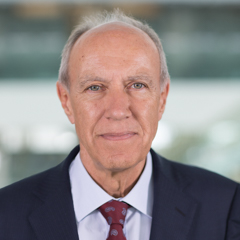Message from WIPO DG Gurry on the International Day of the World’s Indigenous Peoples
August 8, 2016
It is with deep appreciation and respect that the World Intellectual Property Organization (WIPO) joins in celebrating the International Day of the World’s Indigenous Peoples on August 9.

(photo: WIPO).
WIPO is committed to shaping a balanced and effective international intellectual property system for the benefit of all, including Indigenous Peoples.
Indigenous Peoples create, maintain and develop their traditional knowledge and traditional cultural expressions, as part of their core identity and as a rich foundation of their well-being and social cohesion. WIPO’s program of work in support of Indigenous Peoples focuses on appropriate tools, both existing or to be developed, to prevent the misuse of traditional knowledge and traditional cultural expressions by third parties. WIPO’s program furthers Article 31 of the United Nations (UN) Declaration of the Rights of Indigenous Peoples which refers to the right of Indigenous Peoples to “maintain, control, protect and develop their intellectual property over such cultural heritage, traditional knowledge and traditional cultural expressions”.
This year’s theme for the International Day of the World’s Indigenous Peoples - “Indigenous Peoples and the Right to Education” – reflects a core and underlying principle of WIPO’s capacity-building program for Indigenous Peoples. Included within this program are practical workshops, distance learning courses and trainings and the dissemination of briefs, studies and toolkits that aim at helping Indigenous Peoples make strategic use of intellectual property principles and tools, if they so wish, in order to protect their traditional knowledge and traditional cultural expressions for their own benefit.
The cultural heritage of Indigenous Peoples also embodies significant innovation and creativity and constitutes a valuable source of inspiration and knowledge for society at large as well as for creators and inventors, from fashion designers to the pharmaceutical industry, from musicians to farmers. Traditional knowledge could also play an important role in addressing global challenges, from inspiring ways for peoples to live in harmony with the environment, mitigate the effects of climate change or enhance public health and food security.
For example, regional multi-stakeholder practical workshops, involving invited Indigenous Peoples’ representatives, were organized in Namibia (for English-speaking African countries), Panama (for Central and South American countries) and Samoa (for Pacific Island countries) in 2015. One more is being organized in Morocco this year for French-speaking African countries. Further, interested Indigenous persons can participate, free of charge, in the WIPO Advanced Distance Learning Course on Intellectual Property, Traditional Knowledge and Traditional Cultural Expressions. WIPO will also maintain its successful Indigenous Fellowship program, with a new Fellow to start in early 2017.
Insofar as they concern Indigenous Peoples, such initiatives form part of WIPO’s broader contribution to the achievement of the UN 2030 Agenda for Sustainable Development, as well as to the UN System-Wide Action Plan for ensuring a Coherent Approach to achieving the Ends of the UN Declaration on the Rights of Indigenous Peoples that was developed in furtherance of the 2014 World Conference on Indigenous Peoples.
In parallel, WIPO facilitates the development of an intellectual property-related legal instrument or instruments that will ensure the balanced and effective protection of genetic resources, traditional knowledge and traditional cultural expressions at the international level through negotiations taking place within the WIPO Intergovernmental Committee on Intellectual Property and Genetic Resources, Traditional Knowledge and Folklore (the IGC).
In line with Article 18 of the UN Declaration on the Rights of Indigenous Peoples, the role and interests of Indigenous Peoples, as key stakeholders in these intergovernmental negotiations, have been reflected both in the options included in the drafts texts that have been developed so far and in the various modalities that have been established to facilitate their participation in the negotiations as observers.
WIPO looks forward to continue collaborating fruitfully with Indigenous Peoples in support of their specific interests and well-being.